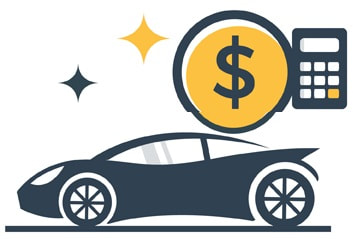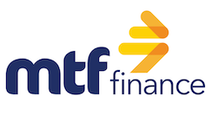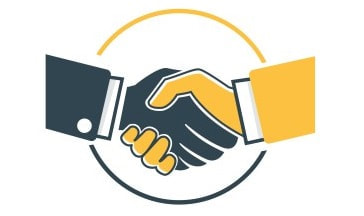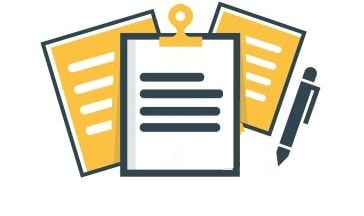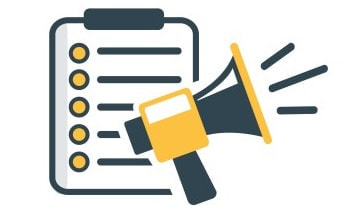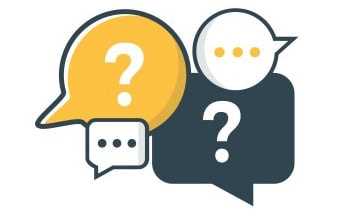Car Loans and Collateral - The Definitive Guide
Collateral loans are risky if you can't make repayments but they offer the lowest interest rates. Our guide gives you all the information to help you decide if a collateral loan is right for you.
Updated 1 February 2024
Summary
In this guide, we outline everything you need to know about using collateral for car finance, the alternatives (i.e. unsecured loans) and must-know facts to consider. We cover:
Are you looking for the best car finance offers? This guide is not for you. Our car finance comparison has the details you need. If you are thinking about getting a guarantor on a car loan, our Car Loan Guarantors guide outlines what you need to know.
Car Collateral - Our View: We believe that secured lending is risky (if you can't repay) but does offer the most affordable financing. Lenders prefer security, as it lowers the risk of the loan. But it's not for everyone, and many New Zealanders use personal loans or specific unsecured loans to help pay for their car purchase. Our guide has been published to give you all the information to help you decide if a collateral loan is right for you.
Summary
- Car financing can be expensive and confusing. Most lenders require collateral, meaning that you'll be asked to put your car up as security.
- If you don't make repayments, you can have your car taken away. As you're borrowing to buy something that's dropping in value, there's also a lot of risk if you don't get the best deal.
- We hear from many New Zealanders who are stuck in expensive high finance arrangements with costly fees, inflexible terms and high interest rates.
In this guide, we outline everything you need to know about using collateral for car finance, the alternatives (i.e. unsecured loans) and must-know facts to consider. We cover:
- Car Collateral and Car Finance in a Nutshell
- Does Everyone Need Collateral for a Car Loan?
- Using Collateral - Must-Know Facts
- Frequently Asked Questions
Are you looking for the best car finance offers? This guide is not for you. Our car finance comparison has the details you need. If you are thinking about getting a guarantor on a car loan, our Car Loan Guarantors guide outlines what you need to know.
Car Collateral - Our View: We believe that secured lending is risky (if you can't repay) but does offer the most affordable financing. Lenders prefer security, as it lowers the risk of the loan. But it's not for everyone, and many New Zealanders use personal loans or specific unsecured loans to help pay for their car purchase. Our guide has been published to give you all the information to help you decide if a collateral loan is right for you.
|
Christopher Walsh
MoneyHub Founder |
MoneyHub's Top Car Finance Options - Avoid high interest rates and fees with trusted lenders.
Our Top Trusted and Affordable Car Lenders Committed to Fast Quotes:
|
Car Collateral and Car Finance in a Nutshell
To understand the obligations of car collateral and its pros and cons, we explain the basics of car financing and collateral below:
What is Car Financing?
Car financing is a loan from a bank, car dealership, or non-bank lender. It’s a loan you borrow to pay for the car. In exchange, you repay the lender monthly. You’ll pay them both a portion of the principal (the amount borrowed) and interest charges. Each lender has different interest and even loan charges, so it is essential to read the fine print to know what you’ll owe and pay.
Most loans are fixed-rate, which means you pay the same amount each month. Your payment doesn’t change, but some loans have early repayment fees. This means if you pay the loan off before maturity, you may pay a penalty. This is how the bank makes up for the interest they’d lose if you pay the loan off early. Not every loan has this penalty - always read the fine print and know your options and obligations.
Most loans are fixed-rate, which means you pay the same amount each month. Your payment doesn’t change, but some loans have early repayment fees. This means if you pay the loan off before maturity, you may pay a penalty. This is how the bank makes up for the interest they’d lose if you pay the loan off early. Not every loan has this penalty - always read the fine print and know your options and obligations.
What is Collateral?
Collateral is an asset you put up (or ‘pledge’) in exchange for the loan. Lenders use the collateral as leverage. If you default on the loan, the lender can take possession of your asset and sell it to repay the balance you owe.
The most common collateral is a car when you take out a car loan. Lenders base your loan amount on the car’s value and your investment/deposit in the car. Usually, lenders require a down payment so you have a vested interest in ensuring the car is paid off in full. This way, you’re less likely to default on the loan because you’ll lose your own investment in the property you pledge as collateral.
The most common collateral is a car when you take out a car loan. Lenders base your loan amount on the car’s value and your investment/deposit in the car. Usually, lenders require a down payment so you have a vested interest in ensuring the car is paid off in full. This way, you’re less likely to default on the loan because you’ll lose your own investment in the property you pledge as collateral.
Does Everyone Need Collateral for a Car Loan?
Not every loan requires collateral, even when you buy a car. You have three options when you buy a car – dealership financing, bank financing, and alternative lender financing. Whoever you sign up with, the lender will usually offer two options – secured and unsecured loans.
Types of Car Loans - Secured vs Unsecured, and the use of collateral
1. Secured car loans
Secured car loans are loans that require collateral (your car). You agree to put the car up as leverage, and if you don’t make your repayments, the lender can repossess your car. If and when this happens, the lender will sell the car at market value and keep the proceeds, settling up your loan. This damages your credit and makes it hard to buy a car in the future.
Secured loans usually have lower interest rates because of the leverage the collateral provides the lender. Knowing they can repossess the car is a benefit. But, they only repossess cars once you are over 30 or 45+ days late on your payments. Lenders are not in the business of taking possession of cars (they don’t want to) but will do so after they’ve exhausted all other options.
2. Unsecured car loans
Some lenders don’t require collateral. These are called unsecured car loans. Without the collateral to back the lender up, lenders take a larger risk. They’ll usually charge higher interest rates to make up for the risk. If you default, they can’t take the car, but they can take other legal action to get their money back.
If you can’t make the payments, lenders will send your account to a collection agency, file a claim against you, and/or try to come after your wages or assets. To avoid the hassle and invariable poor credit history, make sure you only take a loan you know you can pay back.
Secured car loans are loans that require collateral (your car). You agree to put the car up as leverage, and if you don’t make your repayments, the lender can repossess your car. If and when this happens, the lender will sell the car at market value and keep the proceeds, settling up your loan. This damages your credit and makes it hard to buy a car in the future.
Secured loans usually have lower interest rates because of the leverage the collateral provides the lender. Knowing they can repossess the car is a benefit. But, they only repossess cars once you are over 30 or 45+ days late on your payments. Lenders are not in the business of taking possession of cars (they don’t want to) but will do so after they’ve exhausted all other options.
2. Unsecured car loans
Some lenders don’t require collateral. These are called unsecured car loans. Without the collateral to back the lender up, lenders take a larger risk. They’ll usually charge higher interest rates to make up for the risk. If you default, they can’t take the car, but they can take other legal action to get their money back.
If you can’t make the payments, lenders will send your account to a collection agency, file a claim against you, and/or try to come after your wages or assets. To avoid the hassle and invariable poor credit history, make sure you only take a loan you know you can pay back.
Where Can You Apply For a Car Loan?
In the past, you could only arrange finance through a car dealer or your bank, but the lending landscape has rapidly expanded. The growth of online lenders, peer-to-peer lenders, specialist vehicle lenders and finance companies has exploded in the last few years. There has never been more competition amongst lenders for new customers. Examples include:
Know this: Car dealers don’t fund loans – they partner with banks or lenders who fund the loans. They sometimes have access to more options because they work with standard and subprime lenders, which is why they can sometimes get a borrower with poor credit financed. Our view is simple - we always suggest comparing options before talking to a dealer; this gives you have another point of reference. Dealer financing is often pushy and limits your ability to look at alternative financing.
Important: No matter where you get the loan, always read the fine print. Know and understand the interest rates, repayment terms, total borrowing costs and any early repayment penalties that apply.
- Peer-to-peer lenders such as Squirrel
- Online lenders such as Simplify Loans and Harmoney
- Non-bank lenders such as MTF Finance and First Credit Union
- Car dealerships (see our guide to dealer loans vs alternative financing)
- Traditional banks who offer personal loans
Know this: Car dealers don’t fund loans – they partner with banks or lenders who fund the loans. They sometimes have access to more options because they work with standard and subprime lenders, which is why they can sometimes get a borrower with poor credit financed. Our view is simple - we always suggest comparing options before talking to a dealer; this gives you have another point of reference. Dealer financing is often pushy and limits your ability to look at alternative financing.
Important: No matter where you get the loan, always read the fine print. Know and understand the interest rates, repayment terms, total borrowing costs and any early repayment penalties that apply.
Using Collateral - Must-Know Facts
While mortgage lending is always secured against collateral (i.e. a house), many New Zealanders have some reluctance to secured lending for personal property unless it’s essential borrowing. Unsecured loans are widely available and avoid the risk of repossession should disaster strike later on. However, there are many benefits of using collateral in a loan. We outline must-know facts below to help you decide if using collateral is right for you.
- Interest rates and fees are lower with secured loans. It will cost you a lot more money to take an unsecured loan. To properly compare secured with unsecured, don’t look at the monthly payment as that’s not an accurate indication of what a loan costs. Instead, look at the big picture - the total loan costs of each loan over the entire term. These totals will include all interest charges, early repayment fees (if you’d pay early), and all other loan costs
- Comparing both options is the best way to see the difference. By comparing the total cost of an unsecured and secured loan, and you’ll quickly see why using your car as collateral gives you a much more affordable loan. Lenders carefully assess each applicant’s affordability and can’t, by law, offer unaffordable loan terms.
- Lenders will offer assistance should you struggle to meet the repayments. If you get into financial trouble and can’t make your payments, contact your lender right away. Lenders are not in the business of taking cars - they don’t want to do that (and only will as a last resort). If you have financial difficulties, they may have programs to help, including loan deferral (taking a break from payments) or a payment arrangement that makes it easier to get caught up on your payments.
- Always keep your lender informed: The worst thing you can do is avoid talking to the lender. If you don’t call them to discuss your account, and/or don’t make payments, they are left with no option but to take your collateral. If you work with them, they likely have programs that help you keep your car and minimise any damage to your credit history.
What Happens to the Collateral if You Don’t Pay Your Loan?
If you don’t contact the lender and then fail to make your loan payments for 30+ or 45+ days, the lender has the legal right to do a few things. These usually include:
- Sending your account to the collections department. The collections department will try to get you current on your loan. They’ll exhaust all efforts they can to help you get up to date so you don’t lose your car.
- Repossessing your car. If you don’t work with the lender or collections department to get caught up, the next step will see the lender repossess your car. This means they’ll take it under the law (as the collateral is a legal right they have), and you lose all rights to it.
- Chasing for repayment: Just because your car is repossessed doesn’t mean your debt is clear. Once the car is sold, your lender will let you know what balance is owed. For example, if you had an $8,000 loan balance and your car was sold for $7,000, you will owe $1,000 plus any repossession fees and penalties from non-payment. In situations where a lender can’t get enough money for the car to cover the loan balance, you will usually have to make up the difference.
Car Collateral - Frequently Asked Questions
Know this first: If you use your car as collateral, have good financial health and can afford the repayments with a comfortable buffer, you will likely be offered some of the lowest interest rates and fees on a car loan. We believe that secured loans save borrowers the most money over a loan’s life compared to the terms and rates of unsecured loans.
What happens when you use your car as collateral for your loan?
If you don’t make your payments (for example, more than 45 days are missed), the lender can repossess your car. Fees will apply, and you may be charged a penalty interest rate. The lender will proactively work with a borrower to try and avoid repossessing the collateral. To avoid problems and hassle, it’s always best to be upfront and honest with your lender about your financial situation. If you have any concerns, our debt help guide offers options that will help you address the most immediate problems.
Can a used car be used as collateral?
Yes, as long as the lender accepts the car, it doesn’t matter if it’s new or used. Some lenders have requirements regarding how old the car can be or the type of car. Ultimately, each lender has its own requirements. The best way to find the most cost-effective deal is to compare - our car finance guide shortlists those who reliably offer the best rates.
Can you get a car loan even with bad credit?
Our guide to bad credit car loans has more detail. However, if you have bad credit but can offer collateral, you put yourself in a better position. However, it’s difficult to get unsecured car loans if you have bad credit.
Having collateral evens the playing field, giving the lender something to fall back on if you don’t make your payments. If you have a record of bad credit, anything you can do to make yourself look low risk helps the chance you’ll be approved.
Having collateral evens the playing field, giving the lender something to fall back on if you don’t make your payments. If you have a record of bad credit, anything you can do to make yourself look low risk helps the chance you’ll be approved.
Do secured loans get lower interest rates?
Every lender is different and has different requirements, but in general, yes, you’ll get lower interest rates when you use collateral for your loan. Lenders like knowing they have something to fall back on (assuming it’s valuable collateral) if you don’t pay the loan.
If you don’t have collateral or don’t want to put your car up as collateral, you may still get a loan if you have good credit. But, you’ll likely pay much higher interest rates using an unsecured loan.
If you don’t have collateral or don’t want to put your car up as collateral, you may still get a loan if you have good credit. But, you’ll likely pay much higher interest rates using an unsecured loan.
Can a lender repossess your collateral once you pay off the loan?
No, once you pay off the loan, the car is yours, free and clear. The lender no longer has any interest in the car and will have discharged (i.e. released) their claim. The lender will only hold collateral until you satisfy the loan (i.e. pay it off).
Related Guides:
Best Car Finance
Popular Comparisons
Popular Guides
Car Finance Company Reviews:
Best Car Finance
Popular Comparisons
- Personal Loan vs Car Loan - What is Better for Buying a Car?
- Car Dealership Finance vs Alternative Finance
Popular Guides
- How to Save for a Car
- Bad Credit Car Loans
- Balloon Payments
- How to Refinance Your Car Loan
- Car Loan Refinance Calculator
Car Finance Company Reviews:

